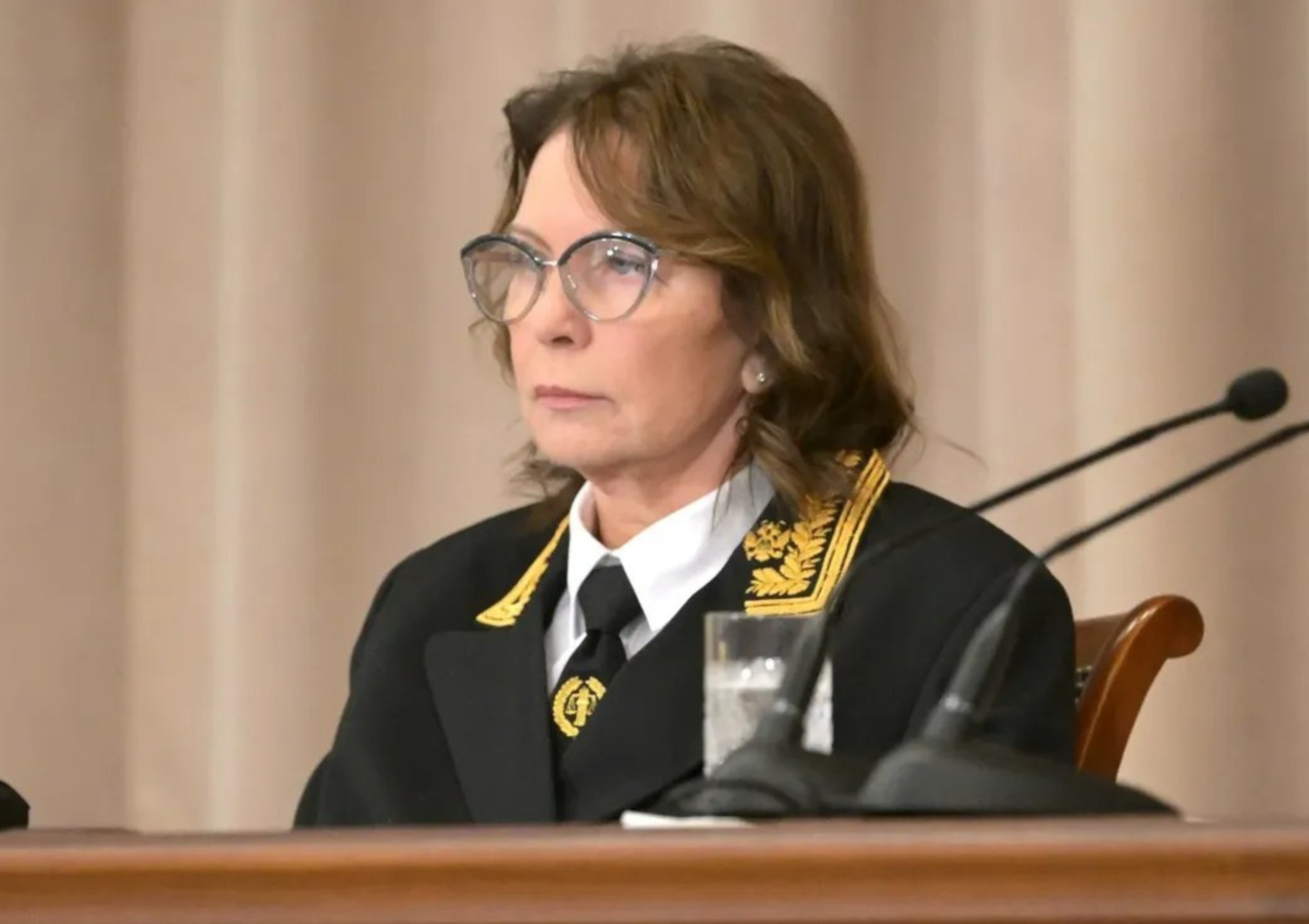
Irina Podnosova, the chief justice of Russia's Supreme Court, died in Moscow on Tuesday at age 71 following a prolonged battle with cancer, Russian state media reported.
Podnosova, who had headed Russia's highest judicial body for just over a year, succumbed to the illness after fighting it for more than 12 months while continuing her judicial duties, according to sources cited by Russian news outlets TASS and RBK.
The veteran jurist was appointed to the Supreme Court's top position on April 17, 2024, as the sole candidate nominated by President Vladimir Putin. She succeeded Vyacheslav Lebedev, who had served as chief justice since 1991 before his death in February 2024, making Podnosova the first woman to hold the position in the court's modern history.
Born in 1954, Podnosova graduated from the Law Faculty of Leningrad State University in 1975 - the same year and institution as Putin himself. This connection proved significant in her later career advancement within Russia's judicial hierarchy.
Podnosova began her judicial career in 1990 as a judge at the Luzhsky City Court in the Leningrad region before steadily climbing the ranks. She joined the Supreme Court in 2020 as deputy chief justice, specialising in economic disputes and arbitration cases.
Despite her lack of extensive arbitration experience, Russian newspaper Kommersant noted at the time of her appointment that she was considered an influential figure within Russia's judicial structures, with sources suggesting "everyone understands who is behind her" – an apparent reference to her relationship with the Kremlin.
The Russian Supreme Court, serving as the country's court of final appeal, comprises 115 members nominated by the president and appointed by the Federation Council, the upper chamber of parliament. Under Podnosova's brief tenure, the court continued its pattern of controversial rulings that critics say demonstrate the judiciary's tight control by the government.
Recent decisions by the Supreme Court have included disbanding opposition political parties, recognising "the international LGBT movement" as extremist, and ordering the liquidation of Memorial, one of Russia's oldest and most respected human rights organisations.
Human rights experts consistently argue that Russia's judicial system operates as an extension of government policy, frequently used to suppress political opposition and civil society organisations rather than serving as an independent branch of government.
Deputy Chief Justice Yuri Ivanenko will serve as acting chief justice while the Kremlin determines Podnosova's permanent successor. Supreme Court chief justices in Russia serve six-year terms and are appointed through the same process that brought Podnosova to power.
Her death comes at a particularly sensitive time for Russia's judicial system, which faces increased international scrutiny over its role in supporting the government's domestic crackdown on dissent and its handling of war crimes cases related to the ongoing conflict in Ukraine.
The appointment of Podnosova's successor will be closely watched both domestically and internationally as an indicator of the Kremlin's continued approach to judicial independence and the rule of law in Russia.